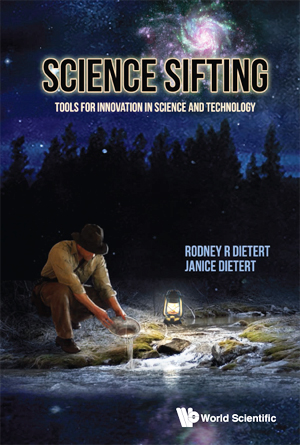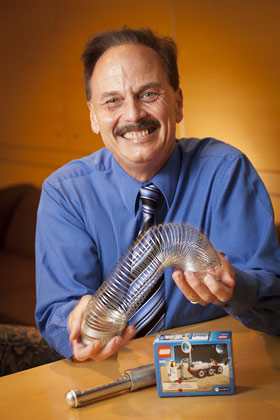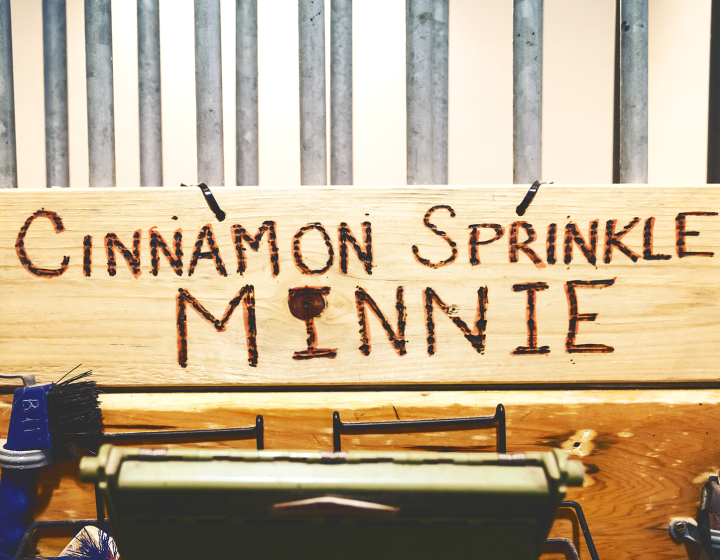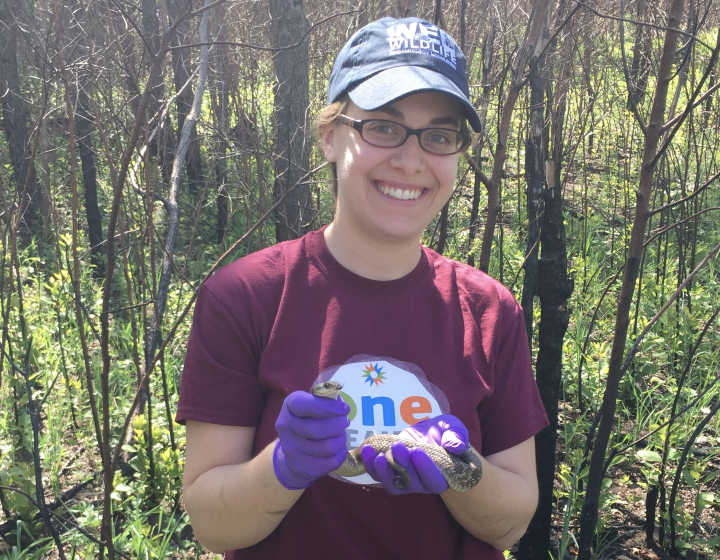Innovative textbook gives tools for sparking scientific creativity
Creativity and new perspectives birth some of the world’s brightest ideas. How can scientists tap into their power?
 A new book by Cornell faculty member Dr. Rodney Dietert and his wife, Janice, offers a plethora of strategies and tools scientists can use to inspire fresh ideas that could augment their work, raise research out of stubborn ruts, or spawn entirely new studies.
A new book by Cornell faculty member Dr. Rodney Dietert and his wife, Janice, offers a plethora of strategies and tools scientists can use to inspire fresh ideas that could augment their work, raise research out of stubborn ruts, or spawn entirely new studies.
Science Sifting: Tools for Innovation in Science and Technology
(World Scientific Publishing Co., 2013),
differs from its typical textbook kin. Describing key features of great scientific breakthroughs, it discusses how to access and use information from diverse sources to help solve problems. The specific strategies it covers aim to tap into broader aspects of scientific training and ways of thinking differently about research questions. It discusses each stage of the research career and long-term strategies for balancing career success and personal satisfaction.
“Our book is based on the premise that creativity can be learned,” said Dr. Dietert, professor of immunotoxicology at Cornell’s College of Veterinary Medicine. “It is designed to help scientists step outside the box and gain broader perspectives for problem-solving using things like dance, art, sleep, meditation, hobbies, and play. If you hit a roadblock in your research and the strategy you’re using doesn’t enable you to overcome it, you may need a new strategy. These strategies offer ways to augment traditional research training with tools that can add new value.”
 A sampling of tools the book discusses includes quick meditations, using language more effectively to avoid labels that restrict thinking about a problem, using olfactory cues to put the brain to work during sleep, exercises to gain objectivity and remove drama from problems, optical illusions that test and help alter mindsets, and ways to use play and favorite hobbies to propel one’s professional work.
A sampling of tools the book discusses includes quick meditations, using language more effectively to avoid labels that restrict thinking about a problem, using olfactory cues to put the brain to work during sleep, exercises to gain objectivity and remove drama from problems, optical illusions that test and help alter mindsets, and ways to use play and favorite hobbies to propel one’s professional work.
Dietert’s inspiration for the book came from years of personal experience and stories of similar experiences other Cornell colleagues had using these kinds of tools. The book serves as a new textbook for Tools for a Lifelong Career in Research, a course that Dietert co-teaches and first offered in fall 2012. The course gives practical how-to tips for undergraduate and new graduate students for making the most of their research career and activating their creativity. The book is also used in half-day workshops Dietert gives at scientific society meetings, universities, and retreats.
The 288-page book includes 31 exercises to enhance creativity and improve research that Dietert says he uses in his own work, the course and the workshops. The preface, titled “A Personal Meditation on Creativity,” is by Cornell Professor Emeritus Roald Hoffmann, winner of the 1981 Nobel Prize in chemistry, and includes some of his new poetry.




